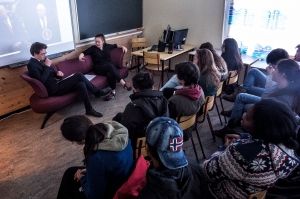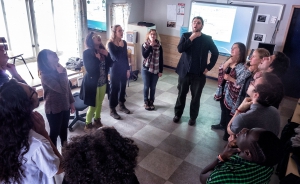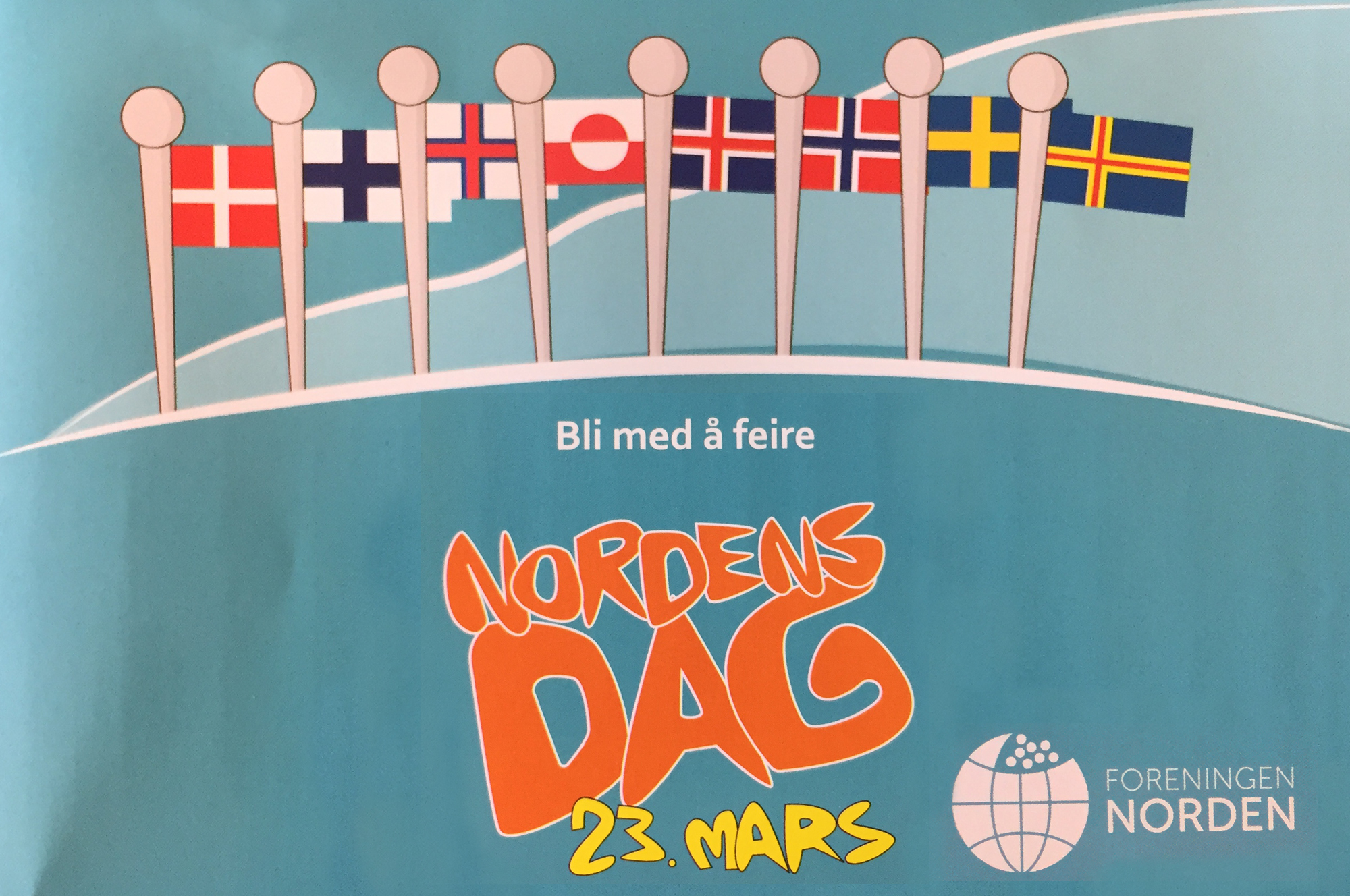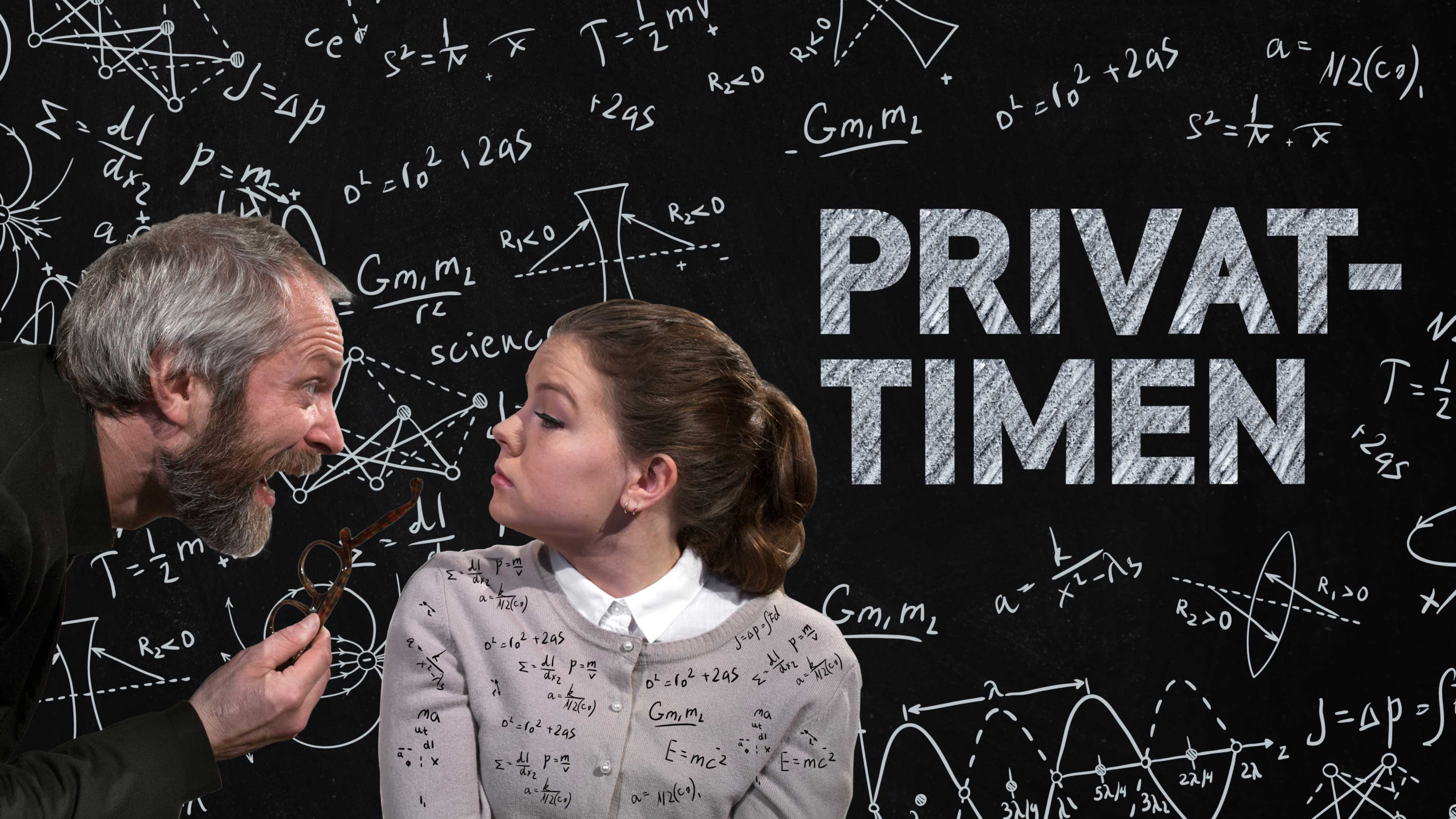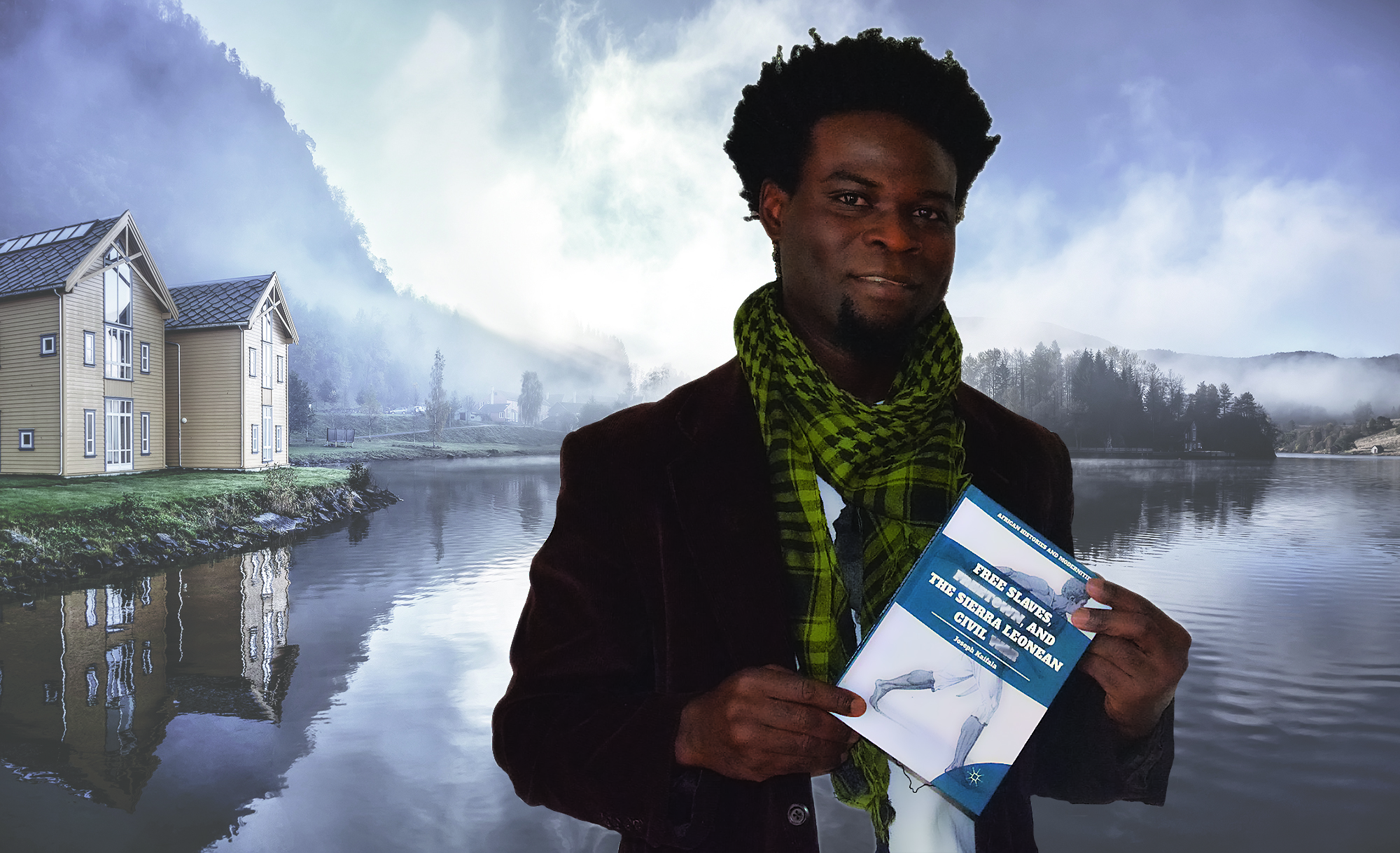Global Concerns – The Nordic Region
After musical performances and an introduction to the day’s events from teacher Lisa Jokivirta, the day’s keynote speaker spoke to a full auditorium. Lars Magne Andreassen is Director of Lule Sami Institute Arran, an Executive Board Member of the Galdu Resource Centre for the Rights of Indigenous Peoples, elected National Representative of UNESCO in Norway, active in the Sami Parliament. he offered a general overview of both indigenous and settler populations in the circumpolar north and discussed extractive industry developments such as mining in the northernmost parts of Norway, Sweden and Finland.
A day of workshops was followed in the evening by the screening of two films about the Arctic, a special dinner – including reindeer meat, and a bonfire with storytelling, snacks and music..
The workshops covered the following topics:
A. Environment and Society in a Changing Arctic
1. Resource conflicts in the Arctic region
Description: The Partition of the Arctic Conference draws a diverse group of RCN students to address the current state of the Arctic region. Our conference will provide participants with a better understanding of the inner workings of the Arctic Council as well as providing a space to improve skills in diplomacy, critical thinking, and public speaking. No prior research on the topic is necessary.
2. Geopolitics in Greenland
Description: “To mine or not to mine?” Greenland might finally have opportunities to earn some money. The money is buried underneath the ground, in the form of natural resources waiting to get dug up, but should we do it? There will be a debate where you get to decide if mines should rule this vulnerable country as you act as the government of Greenland.
3. Melting with Moritz: The #1 talk show about climate change – Episode 15: Looking For Alaska
In this episode of the smash hit television series, Melting with Moritz, Flekke’s favorite host, Linnea Moritz, will talk about how climate change will affect Alaska. If right now you are thinking, “Alaska? That’s one of those strange American states right?” And if that’s all you know then you should come to this week’s mind-blowing episode! This time Moritz will be interviewing a wide range of guests including, but not limited to, climate scientists, activists and residents affected by the Arctic Climate Tragedy. Through her engaging questions, Moritz will provide all the facts you need to understand climate change in Alaska. You should look forward to an exciting, engaging and humorous show!
4. The Controversies behind Whaling in the Arctic
Description: In this workshop, we will look at whaling and examine what makes it such a controversial topic. Why do some countries still practice it, while others see it as wrong? Is it sustainable, and what might be indigenous perspectives on the issue? You will learn the key facts, and then take part in an active discussion.
B. Arctic Peoples and Cultures
5. Indigenous Peoples – Their Political Rights and Status
Description: Focusing on the ambiguity of indigenous people’s political rights, our workshop gives you the chance to learn about the wonderful and yet threatened ways of the Sami people. You will learn about the role and function of the Sami Parliament, the Sami Council, as well as the international channels through which indigenous peoples like the Sami might fight for political rights. Challenge yourself through our mind puzzles. May the sharpest memory win.
6. Indigenous Peoples – Culture and Lifestyle
Description: Have you ever wondered what it’s like to be an indigenous person living in the Arctic? Do they still live in igloos? Do they eat polar bear? This interactive workshop challenges some of the stereotypes surrounding indigenous peoples, and invites you to explore different aspects of their culture, lifestyle and development, and discuss how they navigate between tradition and modernity in an increasingly globalized world.
7. Introduction to Throat Singing and Swedish Herd Calling
Description: In the midst of the Swedish forests, a beautiful melody travels through the silence. A lonely woman calls for her cattle over the mountains. Further east, an old man tells a story through sounds coming far down in his throat. Come and learn the basics of the beautiful, Swedish Herding call tradition, and throat singing. This is an exclusive opportunity and we look forward to seeing you there!
8. Storytelling through dance – representation and cultural traditions
Description: An amazing interactive session to give a better understanding of the role of dance in the storytelling of indigenous tribes. We will give you an overview of the history of the indigenous tribes and we will teach you basic dance moves to enrich your skills of arctic body expression!
9. Vikings – Fact and Fiction
Description: Breaking News! Vikings have returned and taken over Flekke! They are currently inhabiting the island outside of Haugland, and refuse to leave before they give us a taste of their ways. There have been attempts to forcefully remove them, however they seem to be more persistent than they were the first time around. Due to this, we have decided to give in to their demands. We will be sacrificing 20 students to hear their claims and report back to us. This mission will be dangerous, it will take concentration, dedication, appropriate clothing for outdoor activity, sweat and blood. Are you the right person for the job?
10. Vikings Expansion and Ancient Parliaments around the North Sea – interactive lecture with visiting lecturer Anne Hopland
Description: Anne Hopland, the Director of the Ancient Parliament in our region, comes to RCN as a visiting lecturer to give an interactive talk on the theme of Vikings. Did you know that the Vikings had forms of democratic laws and governance? Anne has in depth knowledge about how the Vikings had democratic gatherings and laws that they took to their new areas of settlement, e.g Iceland and Greenland. Come learn more through Anne, and bring along with you any burning questions about the Vikings that you might have!
11. Greenland’s independence – relationship with the US and Denmark
Description: The interest in the arctic continues to increase, and with it the interest in Greenland. Greenland is for now an autonomous constituent state within the Danish realm, but who would benefit from its independence? And is this really in Greenland’s best interest? You decide – The future of Greenland is in your hands!
12. All You Ever Wanted to Know about the Sauna
Description: This workshop is not like any other workshop, Teo will be squatting in the sauna. We will have a brief interactive (and fun) presentation aiming to introduce the history, development and benefits of the sauna. Through a journey like no other, participants will experience and develop their own mentality of the sauna. After the presentation you will join us in a sauna session where we will discuss the interesting happenings in the sauna in the modern era. It will be hot, get ready!
13. An Expedition to the North Pole – The Game
Description: A real-life board game where you will have to work in teams to complete challenges and overcome the difficulties that an Arctic expedition offers, to see who will reach the North Pole, and who will fail. The way is long and dangerous, and you have to expect the unexpected. Do you have what it takes?
14. Nordic Art and Drawing
Join us for the Nordic art workshop where you will have the opportunity to explore Ancient arctic text messages (runes) and Norse decorative art! No prior skills needed, come for a relaxing workshop with snacks, music and Reidun’s art supplies.
15. Indigenous and Minority Language Loss Sharing Circle : Lars Magne Andreassen
There are ten distinctive Sami languages in the Sami homeland, nine of which are considered by UNESCO to be seriously endangered or near extinction. Join us in the Silent House for a more intimate sharing circle about indigenous and minority language loss. Our keynote speaker Lars Magne Andreassen will share some reflections about the historical role of residential schools as well as modern-day examples of language assimilation policies and the challenges of ‘saving’ Sami languages up north. This will be followed by a sharing circle where you are all invited to share any thoughts about minority language loss including indigenous, pidgin and creole languages, all are warmly welcome to join.



